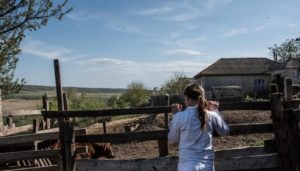 It’s of course extremely hard for sexually victimized people to come forward. But in some places, it’s harder than others. Take largely rural areas like Arkansas, the sixth most rural state in the nation.
It’s of course extremely hard for sexually victimized people to come forward. But in some places, it’s harder than others. Take largely rural areas like Arkansas, the sixth most rural state in the nation.
https://www.nationalpopularvote.com/rural-states-are-almost-entirely-ignored-under-current-state-state-system
In rural places, you have fewer old classmates you can call and ask “Hey, did the pastor we had back then ever do anything creepy to you?” You also have less chance of finding cooperative victims, witnesses and whistleblowers. (Your parochial school, for instance, may have had an enrollment of 90 kids, while an urban school might have 900.)
In small towns, there are often fewer therapists and support groups, and a greater reluctance by victims to seek this kind of help. In rural areas, where a lot of people know neighbors and store clerks and others by name, it can feel like many people know your business. It’s harder to walk in and out of the police headquarters in a small town, and believe no one you know saw you. Or that the front desk officer won’t tell her husband who used to be your sister’s supervisor who will then tell another person and so on and so on.
That’s why we at Horowitz Law are thrilled that Arkansas lawmakers are giving abuse survivors there a chance to expose their predators AND those predators’ accomplices, enablers, supervisors and colleagues who had a chance to report or stop child sex crimes but did not.
/church-sexual-abuse/diocese-of-little-rock/
This new chance comes via a one year civil ‘window’ in which victims can now sue even if their perpetrator is deceased and the abuse happened long ago.
Lawmakers in state after state are passing laws like this, because like the rest of us, they’re tired of feeling disgusted and powerless as child molesters ravage our youth.
And they’re beginning to understand that it’s downright cruel to expect deeply traumatized kids and young adults to report horrific crimes within a few years.
In Arkansas, like every state, there are plenty of proven, admitted or credibly accused Catholic clerics who are still out there, living and sometimes working, around unsuspecting families. Litigation can help expose these potential threats to the safety of kids.
There’s Fr. Timothy Sugrue, for example, who was last known to be living in Florida. In 2019, he was put on the Baton Rouge diocese’s list of ‘accused’ priests by Bishop Michael Duca. He’s also on the Little Rock diocese’s list.
Fr. Sugrue took the Fifth Amendment in a deposition regarding his involvement with children while working in Ohio, Georgia, Louisiana, Alaska and the Philippines. He reportedly resigned from Air Force after an investigation was launched into child sex abuse allegations were leveled against him.
A civil trial against Fr. Sugrue resulted in a $1.5 million judgment against him and he was later dismissed from the priesthood.
But our very strong suspicion is that no one in Florida knows about his sordid past. He might be offering violin lessons to youngsters, tutoring struggling students at the neighborhood library or even babysitting the youngsters of poor, single moms who have to work but can’t afford supervised child care.
(He worked in at least two Louisiana towns, Convent and Paulina, and at Eaker Air Force Base in Blytheville, Arkansas.)
https://d2y1pz2y630308.cloudfront.net/26904/documents/2022/2/List%20Update%201.31.2022.pdf
There’s Fr. Robert A. Torres, who is likely in his late 50s or early 60s now.
https://www.bishop-accountability.org/assign/Torres_Robert_A.html
In 2016, Arkansas church officials announced that they had met recently met with two people who were sexually abused by him at Our Lady of Good Counsel in Little Rock. The diocese also said that given Torres’ admission and its own investigation, he likely abused at least two or three other young people.
(Fr. Torres also worked in several Arkansas towns, including Malvern, Rector, Hope, Ashdown and North Little Rock.)
But let’s end here on a more positive note and express our gratitude again to the state legislators who have now made it possible for victims of men like Sugrue and Torres to seek justice.
These lawmakers also understand that the civil justice system can warn the public about dangerous abusers much more quickly and cheaply than the criminal justice system can, often with less trauma to the already-traumatized. And it should go without saying that either secular system does a far better job of safeguarding the vulnerable than any and every church-devised and church run system.
